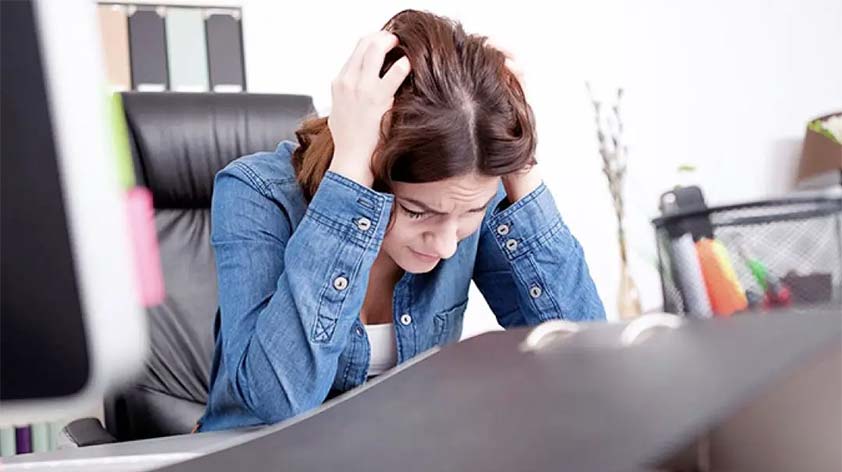
Mental health is the overall well-being of the emotional, psychological and social health that enables us to cope with stressful situations, interact with people, adapt to changes, learn and work well.
Our mental health also determines how we feel, think, and make decisions. In contrast, mental illness is a mental disorder or condition that has been diagnosed and affects our mental well-being. Continue on for Mental Health: 3 Keys to Taking Control of Your Mind.
Mental health is as important as physical health; however, there are some misconceptions about mental health. Some people believe that mental problems are insignificant and uncommon and that only the weak experience mental health problems. According to the World Health Organization (WHO), in 2019, 970 million people were living with mental health conditions. In 2020, the number of people living with anxiety and depression increased to 26% and 28%, respectively, due, in large part to the pandemic.
These numbers show that mental health is a serious issue that needs to be addressed. Mental disorders and mental illness are often used interchangeably, but they do not mean the same thing.
A person might have poor mental health but has not been diagnosed with a mental illness. Likewise, a person might have been diagnosed with a mental illness but still have good mental health. This is because mental illnesses are episodic, and mental health will be good when someone does not have an episode.
Everyone will experience poor mental health at some point in their lives due to some stressors, but not everyone will be diagnosed with a mental disorder. Anyone can experience poor mental health at any time and at any age.
Misconceptions about mental health have birthed stereotypes and stigmatization against people with mental health conditions. They avoid making their condition known for fear of people belittling their problems and labeling them as weak or other demoralizing labels. Awareness of mental health is necessary to reduce these misconceptions and stigmatizations against mental illness and conditions and enable people with mental illness to come out freely and seek help.
Now, let’s get into three keys to help you take care of your mental health.
1. Learn and Unlearn
Consciously or unconsciously, society has influenced our thoughts, ideas and knowledge about certain subjects, which may be good or bad. Our actions and behaviors are underpinned by this societal-based knowledge that we develop certain biases or perceptions on such matters. When we get new information that questions the very foundation of our beliefs, actions and behaviors, unlearning old ways becomes almost impossible.
One example of this is the misconception surrounding mental health. Mental issues are often perceived as uncommon, and people with these conditions are seen as crazy, weak or violent.
If someone has a mental health condition and people with these misconceptions surround them, they start believing in them and affirming that this is who they are and cannot recover from their condition. Unlearning is intentionally removing information that is not useful from the brain—wiping out knowledge or memories that cause emotional harm and creating new memories or learning new things that benefit our minds.
The learning and unlearning processes make you aware of the myth and truth about mental conditions and guide your actions and behaviors moving forward. Then you become mentally aware and equipped to face any challenges.
2. Acceptance Coping Strategy for Better Mental Health
Acceptance is essential to mental wellness as it helps reduce the pain felt when emotionally distraught, however, acceptance is not easily achieved.
Before one reaches the acceptance stage, one must have gone through a series of emotions like – denial, anger, bargaining, depression, and finally, accepting the situation. The stages of acceptance do not usually follow a sequential process. Any of the stages can occur at any time, and relapses may also occur.
Reliving those painful memories cause more harm. You are just stuck in a rut and not making things better for yourself. Accepting your situation is the best way to relieve pain and hurt.
It helps you better manage the problem and have a clearer mind to improve upon your situation. Everyone has their share of difficulties in life and how you handle your challenges determines your mental wellness. Let go of those memories; you have a life to live, and help is always available. You are worth more than the sum of your experiences and your challenges.
3. Pick Up a Hobby
When we pick up just any activity to engage in, we get bored easily and stop engaging in the activity. If the action is for a purpose, we discipline ourselves to continue regardless of our feelings. Hobbies are different. They are the activities that we love and are passionate about, such that when we engage in them, they bring us true happiness and joy.
Hobbies are very engaging, they distract you from the difficulties you are going through, and enable you to focus all your energy on the things you love. Hobbies help you relax, and reduce stress. They improve upon feelings of anxiety and depression and enable you to reclaim your mental health (Baum, 20022). Hobbies can also help you rediscover your interest and strength (Baum, 20022). You find pleasure and fulfillment in knowing your unique abilities. What makes you different from others, and what makes life worth living.
Life is full of obstacles and challenges. Today we are happy, and tomorrow we are not. Mental wellness does not mean 100% happiness, or that you get everything you wish for. It is the ability to cope with stressors, persevere during trying times and channel your energy into positive, creative channels.
Your negative mental conditions do not define who you are. You are worthy of living a good life, right now.









